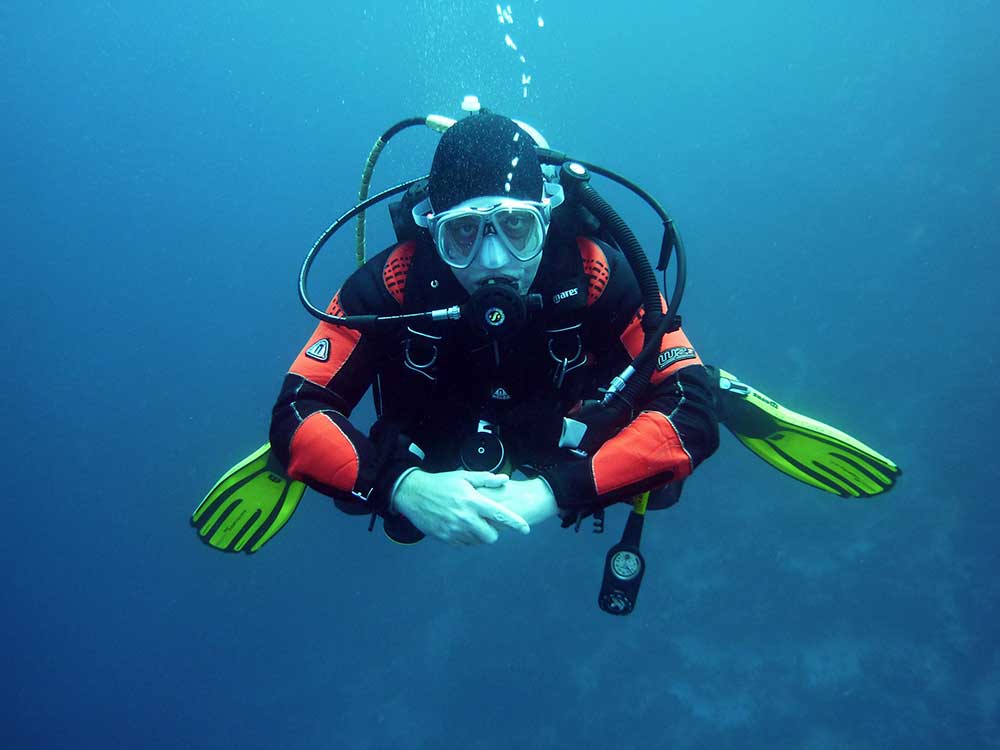
Do Ear Plugs Help When Scuba Diving?
Most divers have experienced some sort of ear pain after they have gone diving or spent too much time underwater. This causes discomfort that is unpleasant, can cause nausea, and can disrupt your diving session. Other divers get serious complications where they have to avoid diving completely - this can be truly frustrating.
This has led to a necessity to find a good solution to the problem. Divers use earplugs, masks, ear dryers, and/or special ear drops just so they could minimize the pain or minimize the onset of the pain during diving. These solutions, however, prove to be elusive and not functional.
Many divers have then looked into using earplugs when diving. Unfortunately, we wouldn’t recommend earplugs when diving. The hearing membranes are not effective past a few feet, and in general, earplugs while diving can damage the ear canal and eardrum.
What Causes The Ear Pain
There are a few circumstances that can lead to ear pain while diving, including water blockage, temperature differences, and water pressure. Divers can occasionally feel pain in their ears as they are diving due to the increased water pressure. The pressure of water increases with depth, hence the more the diver descends the more the water has great pressure.
Divers feel pain as the pressure increases because the external surface of the eardrum is first affected by the rise in pressure. The inner surface has its own ear pressure which then tries to equalize the pressure by relying on the eustachian tube to open. If the eustachian tube doesn't open, the water pressure pushes in on the eardrum which leads to pain and inflammation.
The diver may decide if they can bear the pain and continue or go back to the shallows, if a diver proceeds, they face a risk of rupturing their eardrums due to immense pressure, if the eardrum ruptures, water flows through to the middle ear causing hearing loss, vomiting, dizziness.
Pain can also be caused by swimmer's ear - an infection of the outer ear. It is mainly brought about by prolonged water exposure or if the water is trapped in the ear. This will encourage the growth of bacteria that may later cause an infection.
Symptoms of swimmer's ear include swelling, pain and feeling some kind of fullness in the ear. There are other conditions as well that would cause pain in the ear but are not very common. One of the conditions that may cause pain is called surfer's ear. This is abnormal bone growth inside the ear canal. This can be caused by cold temperatures. Water could get trapped in the ear because of the growth and result in pain.
Not every diver experiences these problems and they vary from one person to another. Those who do, diving to them is more of a gamble as they don't know if they will be affected. It is crucial if you feel pain during the descent that you abort the dive and go back to the shallows.
Can Earplugs Help When Diving?
Above: Duck Dive Surfing Earplugs / Also can be used for swimming
Normal earplugs typically do not help. In fact, they can cause more harm than intended. They create airspace that cannot be equalized when diving. This makes them very dangerous and unsafe. Again, we would not recommend earplugs when diving.
However, surfing is a different story. Surfing earplugs are built in a way that keeps water out of the ear. When customized properly, these earplugs also allow for the surfer to still hear sound while wearing these earplugs.
Due to surface tension of water, the earplugs prevent abrupt pressure changes from reaching the eardrum causing pain. It keeps the ear warm, as cold water does not get in touch with the skin on the inside of the ears which would lead to heat loss through the water.
Conclusion
If you’ve ever experienced ear pain while scuba diving, looking for the first pair of earplugs you can find is not likely the best solution. Talk with an expert to learn more about your options and see what can and should be done to reduce your pain when diving.
Also in Hearing Protection

Are Earplugs Safe To Use?

Ear Plugs at Music Festivals


